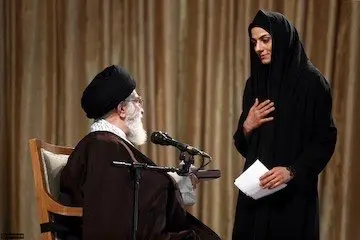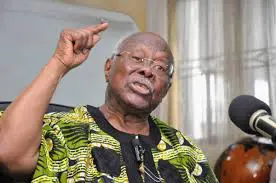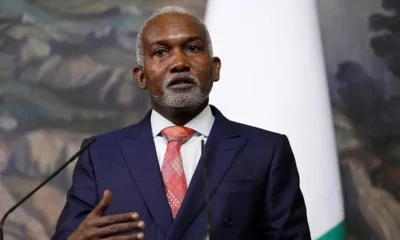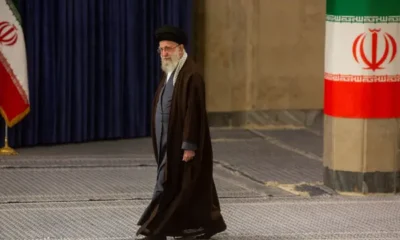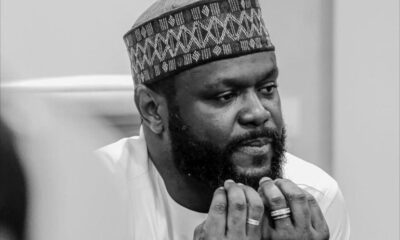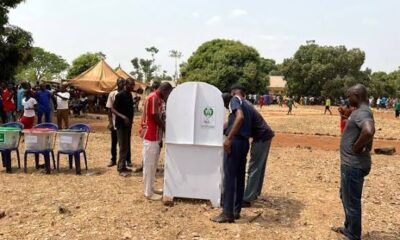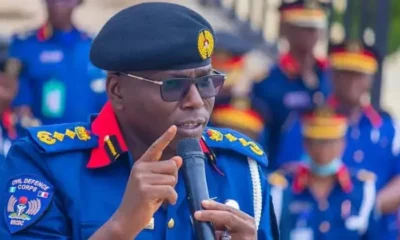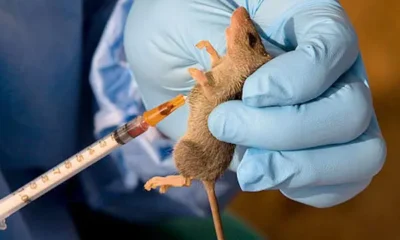African News
DR Congo ex-president Joseph Kabila sentenced to death in absentia for ‘treason’
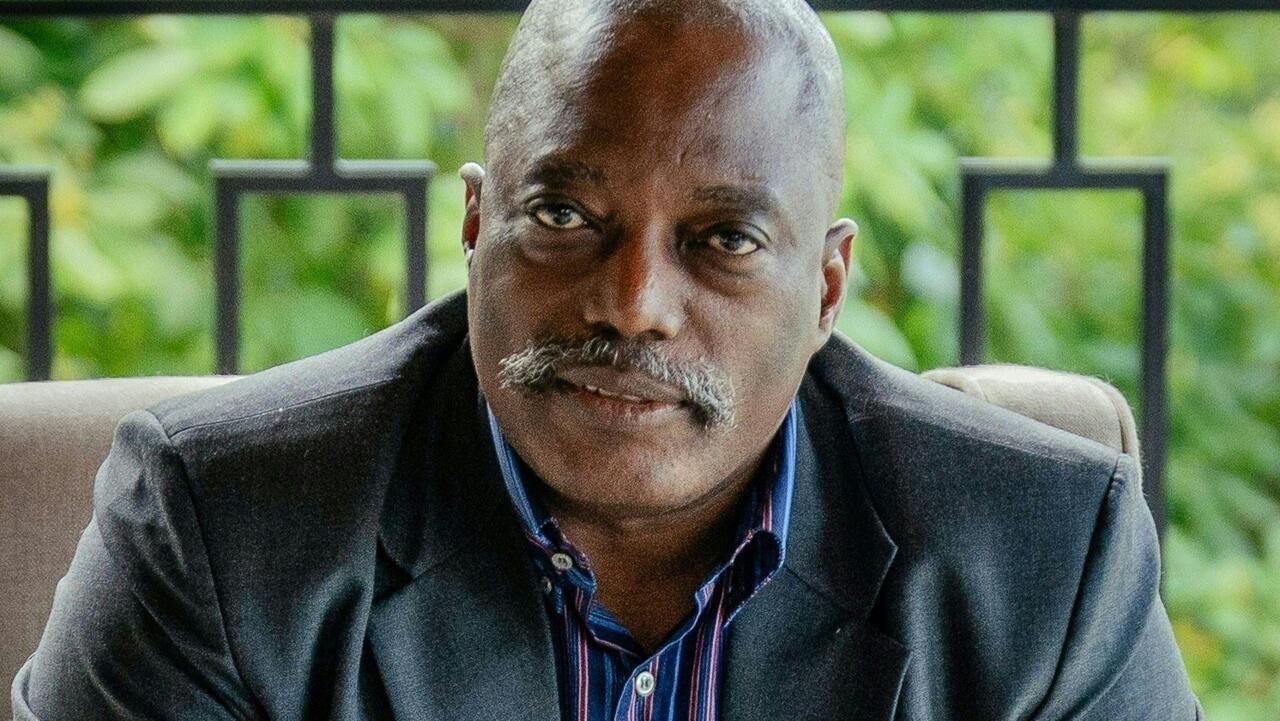
Ex-president Joseph Kabila was catapulted to power aged 29 and ruled the Democratic Republic of Congo for nearly two decades, but after two years in self-imposed exile and a surprise reappearance in the restive east this year he now faces the death penalty.
Kabila, 54, who on Tuesday was sentenced to death in absentia for “treason”, succeeded his father, Laurent-Desire Kabila, after the rebel-turned-president was assassinated by a bodyguard in 2001.
“With his timid voice and his youth, he initially gave the impression of being a lacklustre figure,” wrote Belgian historian David Van Reybrouck.
But the younger Kabila remained at the helm of sub-Saharan Africa’s biggest and most volatile state for two terms, before handing over the presidency to Felix Tshisekedi in 2019.
Out of power, Kabila left the DRC in 2023 but retained his status of senator for life and parliamentary immunity, as well as influence in Congolese politics.
After appearances in South Africa and Namibia, the solitary, secretive figure returned in late May to Goma, which was seized earlier this year by anti-government fighters from the M23 armed group.
Days earlier, the stocky Kabila, shorn of his trademark beard, had declared his successor’s tenure to be a “dictatorship” in an online address.
Kabila’s return set alarm bells ringing nearly 1,000 miles (1,600 kilometres) away in the capital, Kinshasa, given the M23’s rapid advance in the long volatile, mineral-rich east and its backing from Rwanda.
Tsishekedi’s government pushed for his immunity to be lifted, leading to him being put on trial for treason, war crimes and complicity with the M23.
– The outsider –
Joseph Kabila was born on June 4, 1971 in his father’s South Kivu stronghold in the eastern DRC.
He spent most of his childhood from the age of five across the border in Tanzania, before rejoining his father in September 1996 at the start of the First Congo War.
Military training followed in China but he made a swift return at the start of the Second Congo War in 1998 and joined the army.
When his father was assassinated, he inherited a devastated country torn apart by a conflict that would only end in 2003.
At the time, the central government controlled little more than parts of the west and south, and despite the DRC’s vast natural resources, its 100 million people were and remain among the world’s poorest.
With his upbringing in exile and lack of fluency in French and the Lingala language common in Kinshasa, the English- and Swahili-speaking Kabila was viewed as an outsider in the capital.
He often appeared uncomfortable at official engagements but happiest when operating tractors or construction equipment at inaugurations.
“He has an introverted personality, he’s disciplined and he loves discretion,” a member of Kabila’s inner circle said.
Yet the solitary and secretive “man of the east”, said to be a fan of videogames and cars, surprised foreign diplomats with his political nous, having first seen him as a puppet of his father’s old guard.
He was confirmed as president in a vote in 2006 — the first free elections since independence from Belgium in 1960.
– Honeymoon over –
The honeymoon period did not last long, and in 2011, after elections marred by massive irregularities and regular claims of corruption and bad governance, Kabila won a second term.
But in Kinshasa — a bustling megacity of nearly 17 million people — he won only 16.5 percent of the vote.
The main opposition party disputed the overall result, plunging the DRC into political crisis. Protests erupted in 2015 as Kabila sought an unconstitutional third term.
Scores died in violence as he tried to cling on to power. Eventually, he stood aside, paving the way for the first democratic transfer of power in the DRC since independence.
Critics have questioned the terms of the transition, alleging that Kabila wished to rule from behind the scenes by installing Tshisekedi through underhand electoral manipulation.
In any case, the coalition deal between Tshisekedi and Kabila collapsed within two years, with the former working to sideline his predecessor ever since.
In his rare interviews, Kabila is soft-spoken and presents himself as a modest statesman who worked to rebuild a country scarred by decades of ruin and war.
He rebuts charges of having handed juicy mining contracts to foreigners at the cost of the DRC’s development.
Kabila, an Anglican, is married to Marie Olive Lembe Kabila. They have a daughter, Sifa, and a son, Laurent-Desire.(AFP)
-

 World News23 hours ago
World News23 hours agoIran Confirms Supreme Leader’s Death As Attacks Continue
-

 Politics23 hours ago
Politics23 hours agoNigerians Are Hungry, Will Shock You In 2027 – Bode George Tells APC
-

 News23 hours ago
News23 hours agoFG Issues Advisory To Nigerians In Middle East
-

 World News23 hours ago
World News23 hours agoAyatollah Ali Khamenei: The Leader Who Shaped Iran’s Defiance
-

 Metro23 hours ago
Metro23 hours ago‘I won’t be bullied’ – Seyi Tinubu addresses VDM’s claim of secretly funding King Mitchy’s charity work
-

 Opinion22 hours ago
Opinion22 hours agoReflections on FCT polls and voter apathy
-

 News23 hours ago
News23 hours agoTinubu Renews Tenure Of Audi, NSCDC CG
-

 News23 hours ago
News23 hours agoLassa Fever Kills 10 Health Workers In Benue



